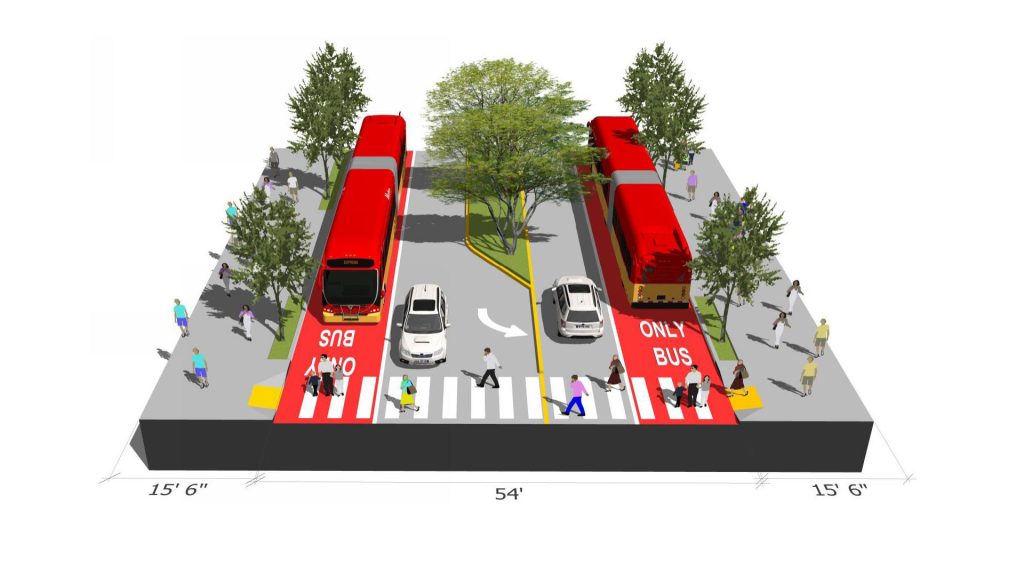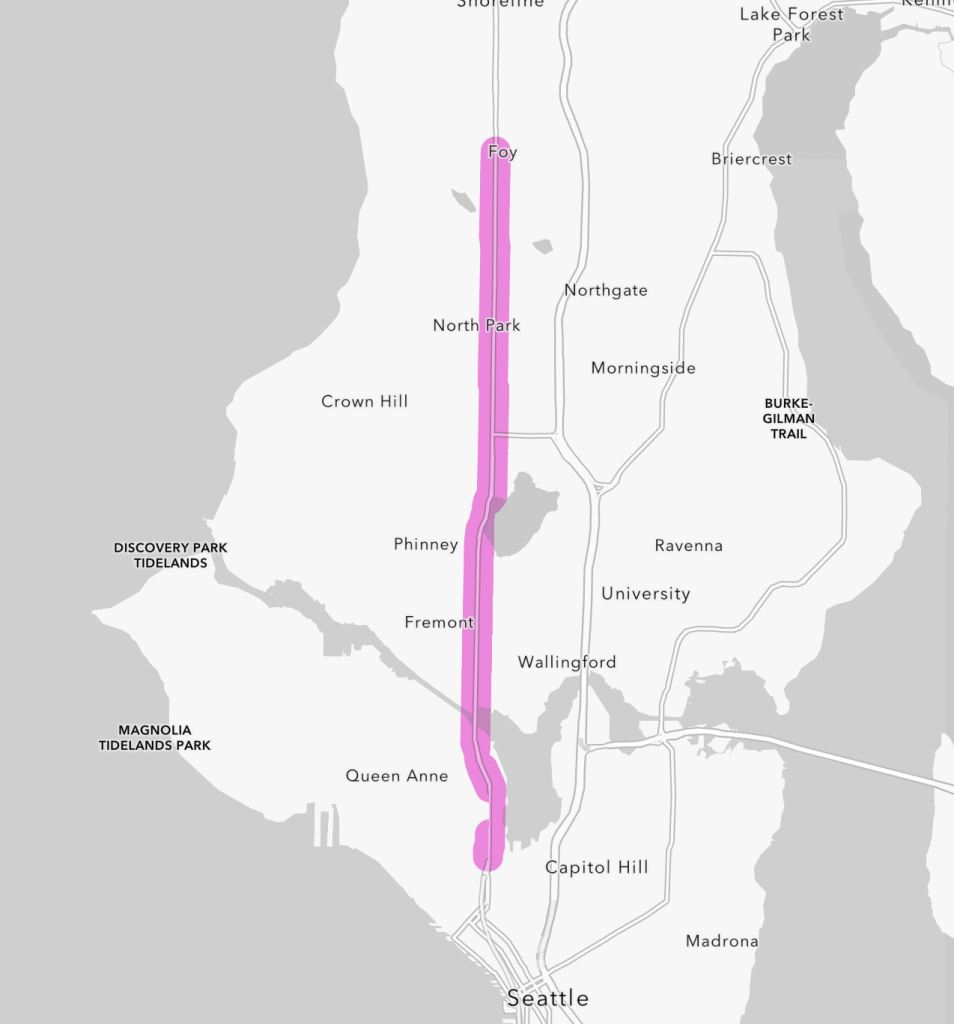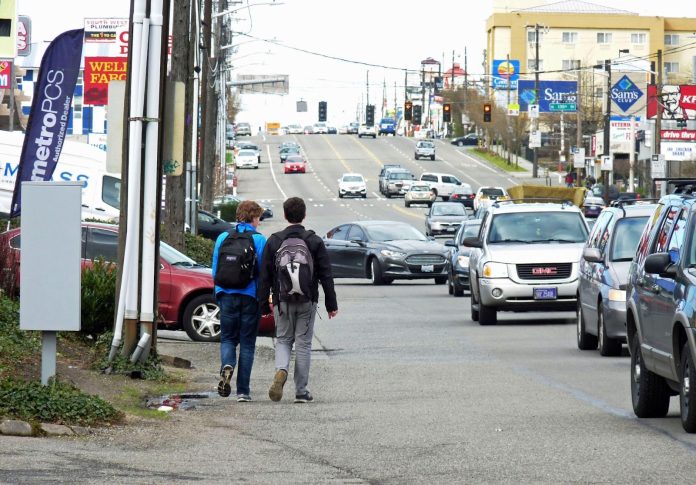Participate in creating a better future for Seattle’s deadliest road.
Here at The Urbanist, we have devoted quite a bit of coverage to Aurora Avenue over the years and for good reason. Aurora is probably Seattle’s most maligned thoroughfare. Its strip-mall-oriented design makes much of the corridor hostile to people walking and biking, and decades of neglect have led to empty storefronts and hotspots for car crashes and crime. Aurora routinely leads the city in deadly car crashes.
But Aurora also has loads of potential, which has been brilliantly put on display by folks like the Aurora Reimagined Coalition and Urbanist contributing writers.
Going car-free, planting a denser tree canopy, creating dense and affordable housing, redesigning sidewalks and intersections to be safer, are all ideas floated in The Urbanist for improving Aurora Avenue. The corridor is so problematic that it can’t help but spark imaginative alternatives.
From a certain perspective, Aurora can be viewed as a microcosm of some of Seattle’s most intractable problems — car-centric design, aging infrastructure, lack of support for small businesses, housing insecurity, etc. The process of creating a green, walkable, bike-friendly, dense, and affordable Aurora Avenue with truly rapid transit could offer a template offering inspiration for the entire region. Solving Aurora’s problems could lift up the Seattle region as a whole.

That will take investment, of course. As its State Route 99 alias indicates, Aurora is a state highway, and a big chunk of the funding will need to come from Olympia. Unfortunately, as Urbanist reporter Ryan Packer covered last month, that investment is slow in coming, as the $50 million that the state legislature pledged for the project won’t be a part of early Move Ahead Washington allocations. But with continued advocacy that could change — and it is a goal worth continuing to fight for.

If you are feeling inspired to participate in creating a better future Aurora Avenue, you are in luck. Tonight is the first in a series of community workshops on the Aurora Avenue Project hosted during the month of June. You can sign up by emailing aurorastudy@seattle.gov and indicating which workshop you’d like to attend. Workshops are focused on particular segments of the corridor, so you may want to sign up for more than one.
Aurora Avenue Community Workshops
- Thursday June 1st, from 4pm to 7pm at Queen Anne Library. Discussions will focus on Segment 1 of the project: Harrison Street to N 38th Street.
- Tuesday June 6th, from 4pm to 7pm at Broadview Library Discussions will focus on Segment 5 of the project: N 115th Street to N 145th Street.
- Thursday June 8th, from 5:30pm to 8:30pm at Bethany Community Church. Discussions will focus on Segment 4 of the project: N 85th Street to N 115th Street.
- Tuesday June 13th, from 5:30p to 8:30pm at Phinney Center – Room 6. Discussions will focus on Segment 3 of the project: Winona Avenue N to N 85th Street.
- Thurs. June 15th, from 5:30p to 8:30pm at Phinney Center – Room 6. Discussions will focus on Segment 2 of the project: N 38th Street to Winona Avenue N.
Natalie Bicknell Argerious (she/her) is a reporter and podcast host at The Urbanist. She previously served as managing editor. A passionate urban explorer since childhood, she loves learning how to make cities more inclusive, vibrant, and environmentally resilient. You can often find her wandering around Seattle's Central District and Capitol Hill with her dogs and cat. Email her at natalie [at] theurbanist [dot] org.


